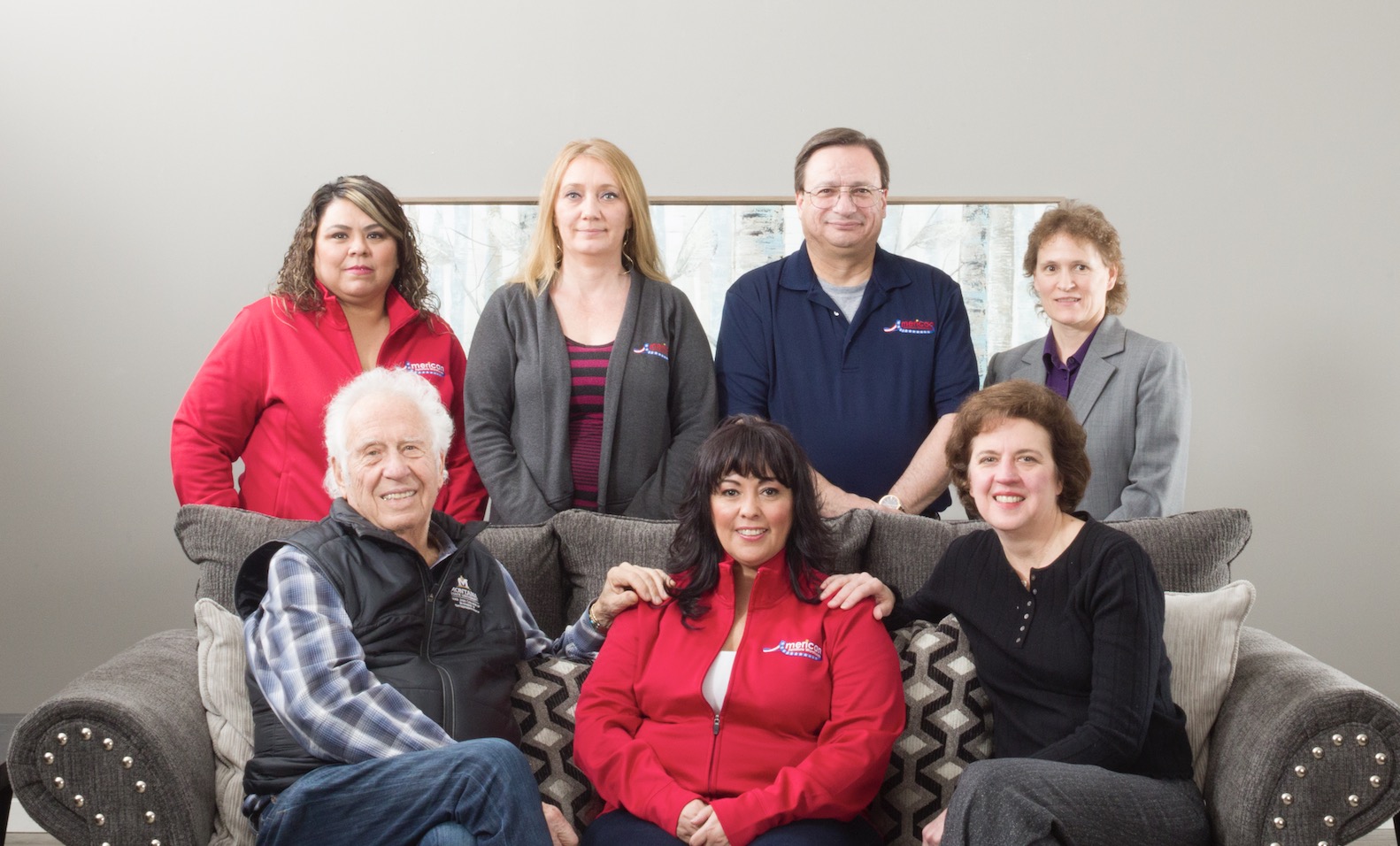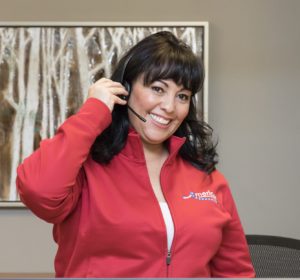Quick response, new treatment offers Sky Ridge stroke patient brighter future | by

Merlinda Lucas, a 47-year-old Brighton resident, was treated at Sky Ridge Medical Center this summer for a stroke. Because her story is unusual, and because she was the first patient to undergo a special treatment at Sky Ridge that should dramatically reduce her chances of having a repeat stroke, Lucas offered to share her story so other people might learn from it.
Merlinda Lucas couldn’t open the microwave door. Minutes before, as she looked up at a coworker waving goodbye, his body morphing from one into three, she shook off the sudden blurriness and hurried to a back break room. She thought she needed food.
“I kept getting dizzier and dizzier. Even when I had to pick up my own arm to open the microwave, I didn’t know what was happening to me,” says Lucas, 47, a receptionist at American Furniture Warehouse, where she has worked for 23 years.
As she repeatedly missed the button to open the door, trying to guide her right arm with her left, Lucas’s entire right side of her body went numb. She slumped into a nearby chair, unable to move. Soon, the motion-sensing light clicked off, and the room went dark.
A Customer Proves Lucky

Merlinda Lucas
As another coworker was walking toward the front door to leave for the day, she noticed a lone customer. She asked if he had been helped, and he said no, that he had been waiting for about 10 minutes. Knowing that Lucas — a bubbly, dedicated employee, loved at work for her chattiness and nearly-permanent smile — didn’t ignore customers, the coworker set out to find her.
Passing by the dark break room, the coworker turned her head in time to catch a glimpse of a silhouette. She stopped, switched on the light, and found a mumbling and dazed Lucas, one side of her face slightly drooping, hunched in a chair. Alarmed, the coworker called for help. A responding supervisor ran in, took one look at Lucas and said: She’s having a stroke.
Prompt treatment for stroke, the result of a blood clot or ruptured vessel, which deprives the brain of oxygen and kills brain cells, can dramatically change outcomes, particularly if a patient is a candidate for the clot-busting drug, tPA (tissue plasminogen activator). The drug should be administered within three hours of a stroke’s onset. Knowing symptoms, which Lucas admits she did not, can make a difference.
“I remember thinking: ‘Oh my gosh, somebody put something in my drink, or, What’s wrong with me? Why can’t I wake up?’ ” Lucas recalls. “It was a very eerie feeling.”
Stroke Recognition Speeds Treatment
In the ambulance, Lucas, who could hear but not talk, recalls her responders discussing tPA and debating on the best hospital for transport. “I could hear one of the paramedics saying something about stroke experts at Sky Ridge and saying let’s go there.”
By the time she arrived at Sky Ridge Medical Center, Lucas could barely see. “When I would open my eyes, I would only see like that much,” she says, holding her hands together in a tiny circle in front of her eyes to illustrate her loss of peripheral vision.
“I can kind of remember my husband coming in, and he was talking in my ear, saying: ‘You’ve got to pull through. I need you,’ ” she says of her partner of 26 years. “But I couldn’t see him.”
Sky Ridge stroke specialists rapidly assessed Lucas and administered tPA. Soon, things began to change. “I remember people saying: She has mobility in her leg again, and, Oh, her face is going back to normal.”
Within two hours, Lucas’s peripheral vision began returning. Within three hours, she was smiling and talking again, something her coworkers would appreciate. “All of my cards from them said: When are you coming back? We miss your smile. We miss that laugh.”
Later, as hospital workers talked about how lucky she was to recover, with no lasting mobility or cognitive issues, they told her: “When you go back to work, make sure you hug whoever those people were who helped you.”
Lucas and her husband, who live on the north side of Denver far from Sky Ridge, have talked many times about how lucky she was being at work during her stroke and near the Lone Tree medical center, she says. “Everybody was great. I couldn’t have had better care. And I’m here to prove it.”
Stroke Symptoms:
Merlinda Lucas suffered most of the common signs of stroke, which can include sudden:
- Confusion, trouble speaking or understanding speech.
- Numbness or weakness of face, arm or leg, especially on one side of the body.
- Vision problems.
- Dizziness, loss of balance or coordination.
- Severe headache with no known cause.
Learn more about Merlinda’s treatment at Sky Ridge.
Tags: Sky Ridge Medical Center, stroke care, stroke symptoms
Comments
Leave a Comment
Please be respectful while leaving comments. All comments are subject to removal by the moderator.

I am so happy for Merlindas recovery. We have been friends for many years and wouldn’t want to ever think about her smile…laughter or love not being shared daily. Thank you all so much for your wonderful work!